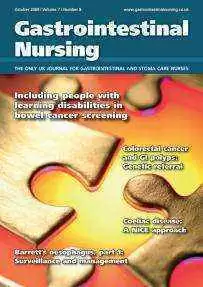
Celiac.com 11/05/2010 - To address study data suggesting that people with intellectual disabilities, especially men, suffer high rates of celiac disease, a team of researchers recently set out to assess rates of celiac disease in patients with intellectual disabilities.
The research team included Manouchehr Khoshbaten, Mohammad Rostami Nejad, Shaheed Beheshti, Nasrin Sharifi, Majid Torabi, David Al Dulaimi, Kamran Rostami, and Chris J. Mulder
Celiac.com Sponsor (A12):
They are affiliated with the Liver and Gastrointestinal Diseases Research Centre at Emam Reza Educational Hospital in Tabriz, Iran, the Research Center of Gastroenterology and Liver Diseases at University M.C. in Tehran, Iran, the Liver Tabriz Welfare Organization in Iran, Nutritional Research Center at Tabriz University of Medical Sciences in Iran, the School of Medicine at at University Hospital Birmingham, UK, and with the Department of Gastroenterology at VU University Medical Center in Amsterdam, The Netherlands, and with the Department of Gastroenterology, at Alexander Hospital in Redditch, UK.
A number of studies suggest that people with intellectual disabilities, especially men, suffer high rates of celiac disease. To more deeply examine the issue, the research team found 196 patients with intellectual disabilities who were being treated in rehabilitation centers in Iran's province of East Azerbaijan.
The team paired these patients with 196 healthy control subjects, and screened both groups for celiac disease using anti-tissue transglutaminase IgA antibodies (tTGA), total serum IgA levels, and Marsh-Rostami criteria to assess histological results.
Two patients (1%) showed positive tTG screens, while and duodenal biopsies revealed Marsh I levels in one patient, and Marsh 0 in the second.
Three patients showed IgA deficiency, while one showed a positive tTGA screen. Biopsies from this patient revealed a level of Marsh IIIc.
From the control group, just one subject showed positive tTGA, while five cases were IgA deficient. Two of the five IgA deficient patients registered positive tTG screens, but both showed normal histology.
These results show the rates of celiac disease in patients with intellectual disabilities to be 1% with biopsy confirmation, and "no significant differences in frequency of the tTGA positive participants between the study and control groups."
Interestingly, in contrast to the higher rates of gluten sensitivity in male patients affected with intellectual disabilities, male and female patients in this study showed nearly equal rates.
This study shows no difference in rates of celiac disease in patients with intellectual disability compared to those with no intellectual disability, "unless the patients have symptoms or known risk factors for celiac disease such as epilepsy or Down’s syndrome."
Thus, the study suggests, general celiac screening of people with intellectual disabilities is unnecessary.
Source:
- Open Original Shared Link






Recommended Comments